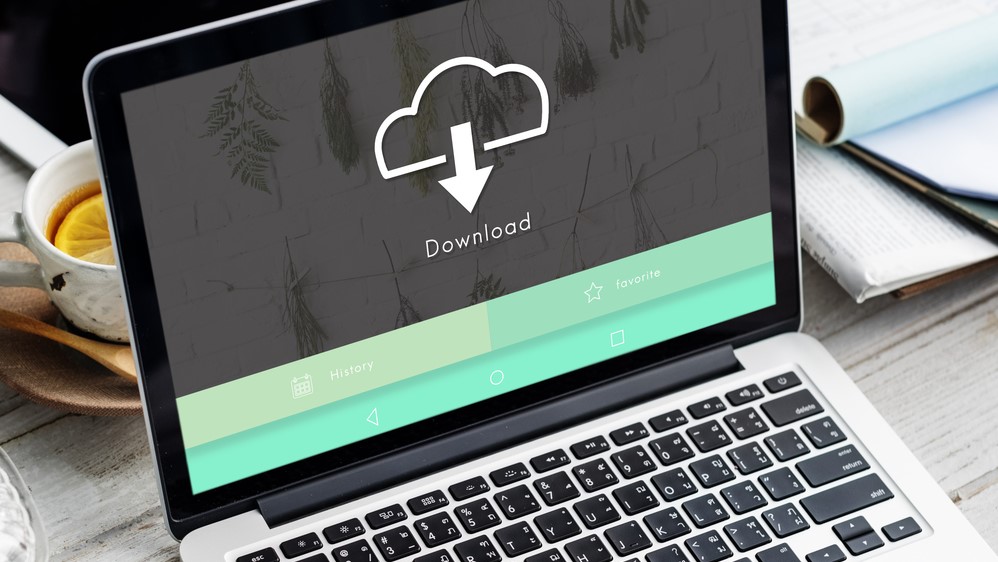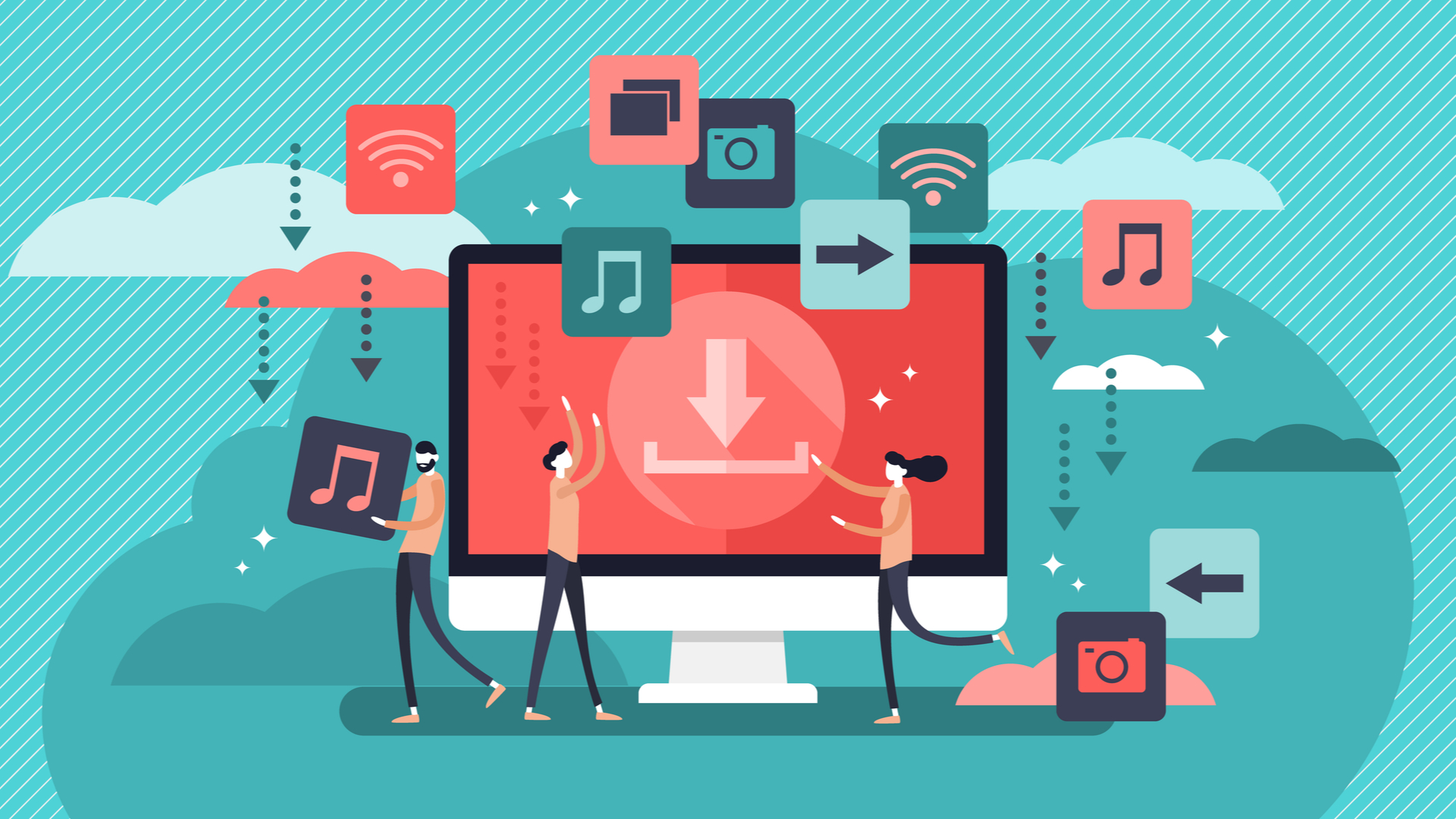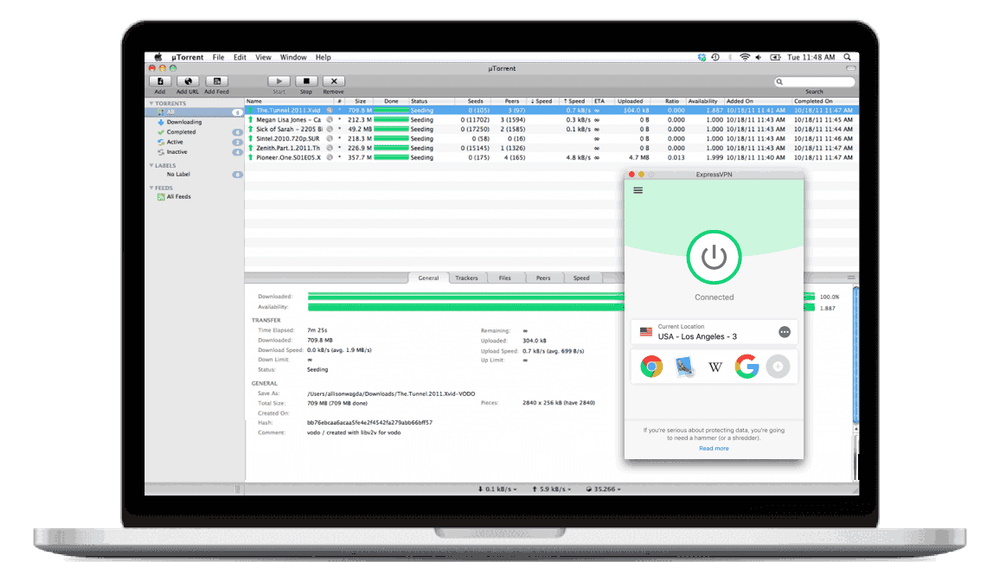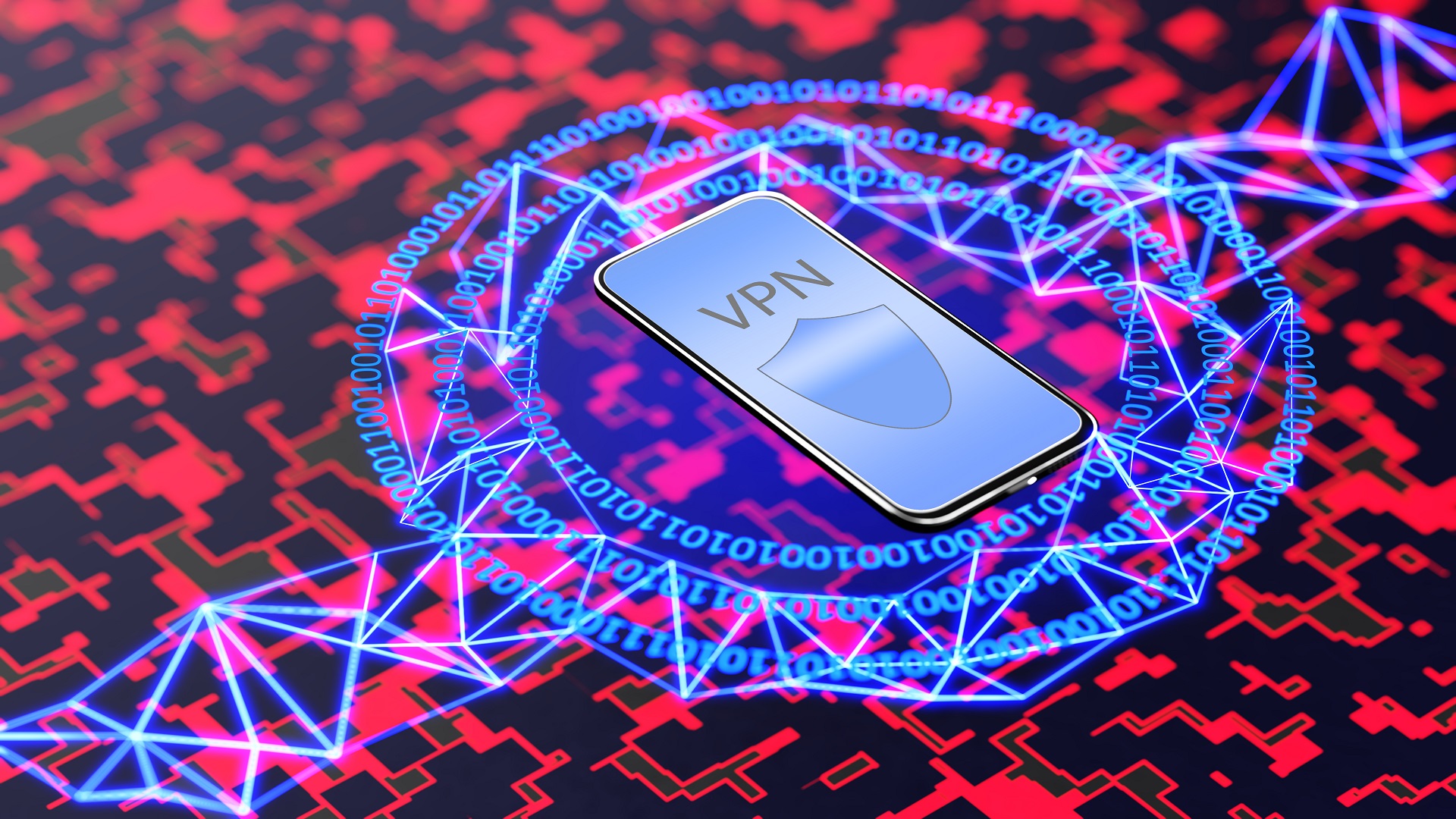Torrenting safely: do you really need a VPN?
Torrenting can be dangerous... without the right protection

Whether it's a movie, song or game, downloading a file from internet with a torrent client is simple - you can do it in just a couple of clicks. But, it can be risky without the right precautions.
Peer-to-peer (P2P) platforms can make it easy to keep trackers on you, with some storing your data online. In some cases, torrents can infect your computer with viruses and malwares. And of course there are the legal implications of using them, too.
It's why online anonymity and security is seen as pivotal for torrenting safely - and the reason a VPN can really help. It doesn't just protect your privacy by hiding your IP address and encrypting your data, the software can even improve your downloading experience overall.
Here, we're taking a closer look at the dangers and possible legal caveats involved, as well as at how a VPN for torrenting can be used for mitigating these risks.
We're looking at how our readers use VPNs with different devices so we can improve our content and offer better advice. This survey shouldn't take more than 60 seconds of your time, and entrants from the UK and US will have the chance to enter a draw for a £100 Amazon gift card (or equivalent in USD). Thank you for taking part.
Is torrenting illegal?
One of the fastest and easiest ways to share files on the internet, torrenting is not against the law. However, this activity opens a grey area for users as downloading copyrighted material is illegal.
Sometimes it can be difficult to determine the nature of a file, too. For this reason, some countries decided to completely shut down torrents sharing platforms. These include the US, Russia, China, Australia, Portugal and Italy.
And the consequences for users downloading illicit content vary a lot from nation to nation - from high fines to even jail time in some instances.
Get daily insight, inspiration and deals in your inbox
Sign up for breaking news, reviews, opinion, top tech deals, and more.
TechRadar certainly doesn't condone any illicit activities you may carry on torrenting sites. But we're also eager that you to enjoy legal use of torrents in the safest way possible.
The dangers of torrenting
As mentioned before, copyright violations are the biggest danger of torrenting. And no, you don't have to necessarily be a pirate that's downloading illicit materials. In many instances, the legality of files is so difficult to verify that this felony simply happens accidently.
Countries across the world are heavily fighting back piracy with fines and even imprisonment. In the UK, for example, the 2017 Digital Economy Act raised the maximum sentence for online copyright infringements to 10 years jail time. Similarly, under the US Digital Millennium Copyright Act (DMCA) criminal offenders may face from five to 10 years in prison and up to $1million in fines.
Your online activity is constantly tracked by your internet service provider (ISP), which will be equipped with specific tools for monitoring torrent users. Plus, torrent sites and database like I Know What You Download store users identifiable information - like your IP address - publicly online for anyone to access.

ISPs are also able throttle download speeds when it realizes that torrents are being shared. That's mainly because downloading large files uses up a lot of bandwidth - something that costs more money for your internet provider.
On top of that, the integrity of the material you download can be compromised. Torrents are a big target for hackers who can infect files with malware and viruses to steal your data directly from your device. That's why using a good antivirus, together with a VPN service, can improve even further your safety when torrenting.
How a VPN can protect you when torrenting
As we have seen before, torrenting can be a risky activity when carried on without the right protection. By using a VPN service, you will be able to torrent anonymously while securing your sensitive data.
A virtual private network hides your real IP address and geographic location, making it impossible to track down your activity. Plus, it uses encryption protocols to anonymize your data via an encrypted tunnel.
Choosing one of the best VPNs for torrenting you will prevent your ISP from spying on your online activity and sharing data with governments or other third parties. It also allows accessing torrent sites in countries where these have been shut down.
On top of that, your torrenting experience may be improved generally thanks to potentially faster connection speeds and, in most cases, unlimited bandwidth.
ExpressVPN - the best VPN for torrenting right now
ExpressVPN ticks all the boxes when it comes to your torrenting needs. It is equipped with tons of servers spread wide across the globe, fast connection speeds to ensure the speediest downloads and effective kill switches across a range of devices. Oh yeah, it's also super easy to use. Try it out 100% risk free with its 30-day money back guarantee.
How to choose the safest VPN for torrenting
Equipped with the knowledge that security software is vital for protecting your data and privacy when torrenting, you also need to know how to choose the right VPN. There are several features that are well worth considering.
As your primary goal is torrenting anonymously while securing your data, you need to make sure that the service offers the most secure encryption methods available. The 'military-grade' AES (Advanced Encryption Standard), for instance, is known as the worldwide standard for solid cybersecurity and, fortunately, is used by most of the top providers.
Look for the best protocols right now, like OpenVPN or WireGuard - the latter of which blends a high security level with fast connection speeds. Major providers - like ExpressVPN and NordVPN - have even developed their own protocols based on it.

You also want to choose a VPN with a strong no-logging policy. That way, you can be sure that your data - beside some really essential details required by the provider - is not stored and so can't be leaked.
It means that even if ISPs or governments want to access your information - following some criminal investigations, for example - it won't be possible as this data do not exists. ExpressVPN, NordVPN and TunnelBear are among the providers with the clearest and least invasive policies on this regard.
An integrated kill switch is a feature that improves your safety even further as it protects you from any unexpected data leaks that may occur. Sometimes, even the encrypted tunnel may get interrupted momentarily. A kill switch will simply cut the connection when this happen to prevent your data being exposed to your ISP.
Also a fast and reliable connection is pivotal when downloading materials, especially big files. You don't want to have limitations on how much content you can get, either. So, make sure to choose a VPN with no caps on bandwidth consumption - luckily, most paid-for VPNs do these days.

Is a free VPN good enough for torrenting?
Looking at prices of premium services you may be tempted to opt for a free VPN to ensure your safety when torrenting. But while a freebie can be a valuable solution for certain needs, they are not quite able to protect you from the risks hunting peer-to-peer torrents sharing.
More often than not, free services (especially the dodgier proponents on the web) will collect your data and share this information with third parties, through ads for example. They may leak your IP address, too - a study on 283 Android apps indeed found that up to 84% of free VPN apps do so.
Other free services have also strict bandwidth limitations that make it basically impossible to download a full movie, game or TV show. For instance, TunnelBear's free version offers excellence privacy protection, but its free plan has a bandwidth allowance of only 500GB.
For these reasons, it is not really worth getting a free VPN if your primary use is torrenting.

Chiara is a multimedia journalist committed to covering stories to help promote the rights and denounce the abuses of the digital side of life – wherever cybersecurity, markets, and politics tangle up. She believes an open, uncensored, and private internet is a basic human need and wants to use her knowledge of VPNs to help readers take back control. She writes news, interviews, and analysis on data privacy, online censorship, digital rights, tech policies, and security software, with a special focus on VPNs, for TechRadar and TechRadar Pro. Got a story, tip-off, or something tech-interesting to say? Reach out to chiara.castro@futurenet.com
